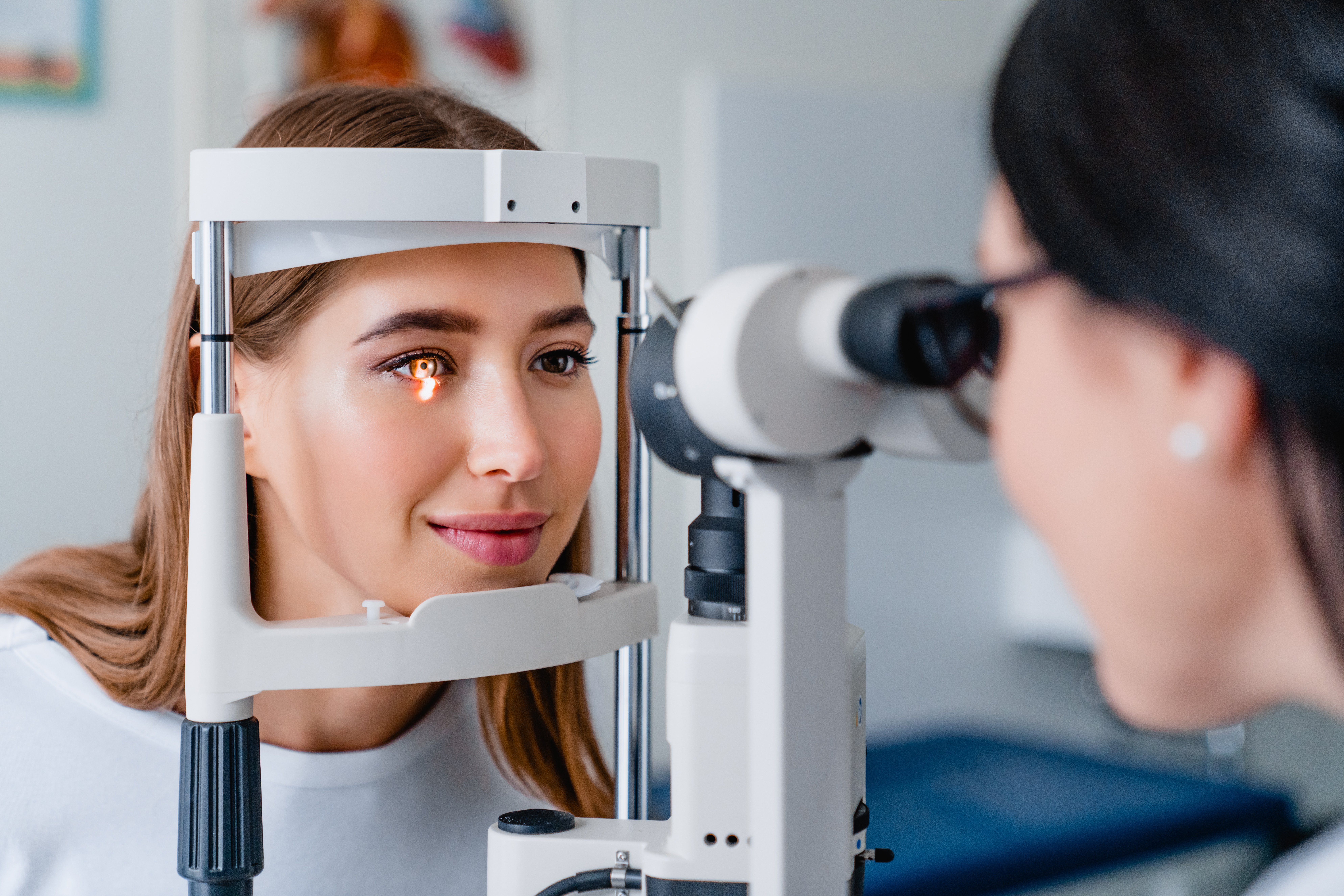By Andrew Hickey on Mar 21, 2024 @ 10:12 AM
Our vision is one of the most important senses we have. It allows us to see and experience the world around us. However, people may need to realize that their eye health can also impact their overall health. That is why comprehensive eye exams are so crucial. They can reveal so much about your well-being.
From potential accidents to mental health concerns, we will explore how vision health affects your overall health. Plus, we will discuss what you can do to maintain healthy vision.
Key Takeaways:
- Our vision health is intricately linked with our overall health and well-being.
- Routine eye exams are essential to maintain healthy vision and detect potential health issues.
- Eye strain can lead to headaches, fatigue, and neck pain, and taking regular breaks from computer screens to prevent eye strain is essential.
- Poor vision may increase the risk of accidents, such as falls or car accidents, and wearing corrective glasses or lenses, if needed, is essential.
- Eye exams can provide clues about other health issues, such as diabetic retinopathy, hypertension, brain tumors, lupus, Lyme disease, and rheumatoid arthritis.
- It is essential to seek medical attention if you experience any changes in your vision or any of the symptoms mentioned above.

Eye Strain Can Affect Your Quality of Life
Eye strain is a widespread problem that affects many people, especially those who spend a lot of time in front of a computer screen. It can cause headaches, fatigue, and even neck pain. If left untreated, eye strain can affect your quality of life and make it difficult to perform everyday tasks. Take regular breaks from your computer screen and get regular eye exams to prevent eye strain.

Poor Vision Can Lead to Accidents
Poor vision may also increase your risk of accidents, such as falls or car accidents. If you need help seeing clearly, you may need more time to react to avoid environmental hazards. This is why regular eye exams and wearing corrective glasses or lenses if required, are essential.

Eye Health Can Indicate Other Health Issues
An eye exam may provide clues about your overall health. Here are examples of conditions that your eye doctor can detect during an exam:
- Diabetic retinopathy: This causes damage to blood vessels in the back of the eye. It is the leading cause of blindness in adults aged 20 to 74.
- Hypertension: During an eye exam, your doctor can view the blood vessels in your retinas. It will allow them to look for early signs of hypertension, also known as high blood pressure. This condition can affect many vital body parts, including the arteries, heart, brain, kidneys, and eyes.
- Aneurysm: Aneurysms require immediate medical attention. Symptoms may include a severe, one-sided headache or loss of facial or body function.
- Brain tumor: When a brain tumor develops, it can exert pressure on the brain. This, in turn, can affect the eyes. This pressure can cause swelling in the back of the eyes, resulting in visible changes to the optic nerve. Other symptoms that may indicate the presence of a brain tumor include loss of peripheral vision, recent double vision, or changes in the size of a pupil. Seeking medical attention if you experience any of these symptoms is essential.
- Cancers of blood, tissue, or skin: A comprehensive eye exam can detect various forms of cancer. Skin cancers may impact the outer eye and eyelids, with basal cell, squamous cell, and melanoma being the most prevalent types. Additionally, leukemia and lymphoma can affect the inner aspect of the eye. At the same time, tumors from other parts of the body, such as the breast, can metastasize and spread to the ocular structures.
- Lupus: This autoimmune disease can cause dry eyes and eye swelling in various areas, such as the white part of the eye, the middle layer, or the light-sensitive tissue in the back of the eye.
- Lyme disease: Lyme disease is an infection transmitted by ticks, causing systemic inflammation, including inflammation of the optic nerve and increased floaters.
- Multiple sclerosis: Inflammation of the optic nerve can be a warning sign of multiple sclerosis, which affects the nervous system. This inflammation often causes blurred vision, painful eye movement, or double vision.
- Rheumatoid arthritis: Individuals with rheumatoid arthritis (RA) may experience ocular symptoms such as red, painful eyes. This may indicate scleritis, an inflammation of the white part of the eye that requires medical treatment. Additionally, dry eye is a common issue among those who have RA.
- Sickle cell disease: Sickle cell disease is a genetic blood disorder that causes the production of rigid and comma-shaped red blood cells. These cells can block blood flow throughout the body, resulting in various ocular changes. The disease can cause minor ocular changes such as redness and burst blood vessels on the eye's surface, as well as severe hemorrhages and retinal detachment inside the eye.
- Stroke: The retina's blood vessels can sometimes encounter blockages or clots, leading to sudden blind spots or a feeling of a "curtain" closing over one's vision. These symptoms can indicate an elevated risk of stroke. Additionally, a loss of peripheral vision may be an indication of prior brain damage caused by a stroke.
- Thyroid disease: Protruding eyeballs and retracting eyelids are telltale signs of hyperthyroidism. This happens when the thyroid gland produces too much or too little hormone. Sometimes, this coincides with dry eye, blurry vision, or vision loss.
- Vitamin A deficiency: Without enough vitamin A, your eyes cannot produce enough moisture to keep them properly lubricated. Low vitamin A levels also lead to night blindness by preventing the production of certain pigments needed for your retina to work correctly. Vitamin A deficiency is the leading cause of preventable blindness in children worldwide.

Sound Vision is Important for Mental Health
Poor vision can lead to anxiety, depression, and decreased self-esteem. It can also make it difficult to perform everyday tasks, leading to frustration and stress. Maintaining good vision can improve your overall mental health and well-being.
Vision health is an essential component of overall health. Taking care of your eyes and getting regular eye exams can prevent eye strain, reduce your risk of accidents, detect early signs of other health issues, and improve your mental health. So, prioritize your vision health and take the necessary steps to care for your well-being.
For more, you can read our comprehensive guide to eye wellness and optimal eye health.
Want to have Solstice benefits?
Call our sales team at 877.760.2247 or email Sales@SolsticeBenefits.com
Already have Solstice benefits?
See your plan details by going to https://www.mysmile365.com/ or calling us at 1.877.760.2247.




comments